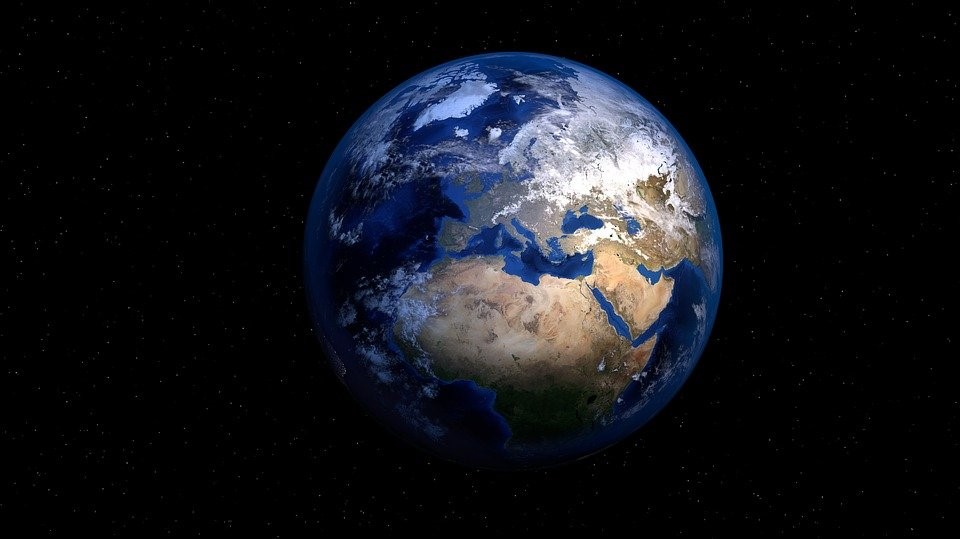What is the State Department highlighting this week in its media releases? The headlines coming out of Washington include: “China Could Overtake US in Space,” “Terrorism Rising in African Sahel,” “US is Participating in UN Chiefs of Police Summit,” and “The Kremlin’s Illegitimate Tribunals in Mariupol,” among others. On Saturday, the Department released a joint statement with other nations saying it met to talk about the problems in Syria. A day earlier the Department noted that it met for the ninth in a series of talks labeled the” US-Vietnam Asia-Pacific Dialogue.” One day earlier on Thursday the Department released a statement saying the “G7 Non-Proliferation Directors Group remains profoundly concerned by the serious threat over the continued control of Ukrainian nuclear facilities by Russian armed forces pose to the safety and security of these facilities.” The list goes on week after week, meeting after meeting, during a period of severe instability across the world. Diplomacy is a war of words, but it requires strong, unambiguous action backing up those statements. What is the leader of the free world doing? Why all talk and so little action out of Washington?
China, Russia, Iran, and North Korea, among other states hostile to the west, are joined together in an unholy alliance that is historic in size. The population of these four states alone surpasses 1,658,478,000. They supply each other with weapons of war and buy each other’s goods that are sanctioned by the rest of the world to help keep their economies afloat. Iran builds and sells drones to Russia for use in its war in Ukraine. China buys Russian wheat and energy. They take action.
The State Department’s response to a ship getting past the Russian Navy this week said that it was “grateful” a Ukrainian wheat shipment got through the Black Sea to its African destination. “The United States welcomes the arrival in Djibouti of 23,300 metric tons of Ukrainian grain aboard the ship Brave Commander. This grain will be distributed within Ethiopia and Somalia, countries that are dangerously food insecure after four years of drought. The United States is grateful for the important role Djibouti has played facilitating the flow of humanitarian goods to the region.”
In the past it was said that other nation-states knew US foreign policy by the actions Washington took, or the ones it deliberately did not take. The message was made clear to those who violated the rules-based international order. What is left of US foreign policy today appears muddled in broad announcements reacting to what other states are doing. Again, where is the leadership? What is our foreign policy?
The United States in 1954 signed a Mutual Defense Treaty with Taiwan. Since that time the US derecognized the country, formalized relations with China, and continues to attempt to placate both sides of the Strait. This week it came down to a retired Taiwanese tech mogul, who was weary of US inaction, pledging his millions to fund training for civilian troops to protect Taiwan. Robert Tsao says he is willing to spend $33 million to fund the training of 3 million civilians for three years. That is action. At the same time this week the Biden Administration announced the “United States will continue to advocate for a fair, practical criminal justice instrument that respects human rights and provides a modern electronic evidence framework built on consensus and informed by experts” to handle cybercrime. The US media are culpable, too. ABC News spent more time this week reporting on the “emotional support alligator” seen in Love Park in Philadelphia than on the genocide of over a million Muslim Uyghurs in western China. A year ago, the Biden Administration failed in its withdrawal from Afghanistan. Americans lost their lives. No one in the Biden Administration is taking responsibility or talking about it. This Thursday at a State Department briefing for the media, the Spokesperson responded to a reporter’s question about the impact of potential leak of radioactive material from the Russian-bombed ZNPP power plant in southern Ukraine. Vedant Patel, Principal Deputy Spokesperson in the Bureau of Global Public Affairs said: “We strongly condemn any action at ZNPP or elsewhere that impacts the health and welfare of civilians throughout the region.”
Now that the US has offered its statement of concern our European allies downwind can rest easy.
Daria Novak served in the U.S. State Dept.
Image: Pixabay
